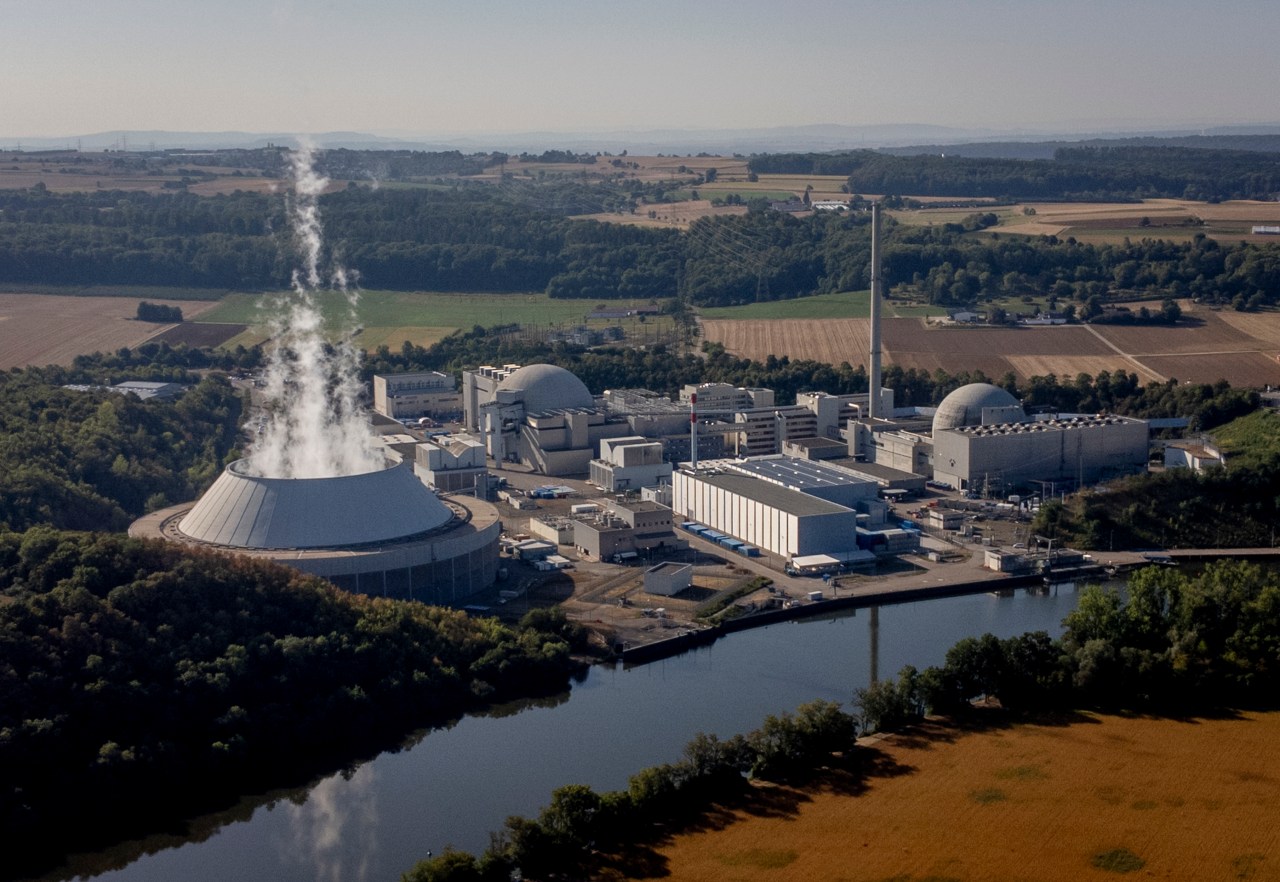Taiwan Turns To LNG: Addressing Energy Needs After Nuclear Shutdown

Table of Contents
The Necessity of Diversifying Taiwan's Energy Portfolio
Over-reliance on a single energy source, as was the case with nuclear power, presents significant risks. Energy security demands a diversified portfolio capable of withstanding price fluctuations, supply disruptions, and geopolitical uncertainties. While Taiwan has historically relied heavily on coal imports, this dependence creates vulnerabilities. The shift towards LNG offers a less carbon-intensive alternative and a pathway towards a more resilient energy system. Diversification is not simply about replacing one fossil fuel with another; it's about strategically integrating various energy sources to minimize risk and maximize stability.
- Reduced reliance on potentially unstable foreign energy suppliers: Diversification mitigates the impact of political instability or trade disputes in source countries.
- Mitigation of risks associated with fluctuating energy prices: A diversified portfolio lessens the impact of volatile global energy markets.
- Improved energy resilience in the face of natural disasters or geopolitical events: Multiple energy sources offer redundancy, reducing vulnerability during crises.
- Environmental considerations in moving away from coal: LNG offers a lower-carbon alternative to coal, contributing to Taiwan's emission reduction targets.
LNG Infrastructure Development in Taiwan
To accommodate the increased reliance on LNG, Taiwan is making significant investments in its energy infrastructure. This involves substantial upgrades and expansion of existing and new LNG receiving terminals, bolstering import capacity to meet growing demand. Simultaneously, the island is investing heavily in upgrading and expanding its national pipeline network to efficiently distribute LNG throughout the country. These investments represent a substantial commitment to ensuring a reliable and efficient LNG supply chain.
- Expansion of existing LNG terminals: Existing facilities are undergoing upgrades to increase processing and storage capacity.
- Construction of new import facilities to meet growing demand: New terminals are being built to handle the rising volume of LNG imports.
- Upgrades to the national gas pipeline network: Existing pipelines are being expanded and new ones are being constructed to ensure efficient distribution.
- Investments in LNG storage to ensure reliable supply during peak demand: Strategic storage capacity is being increased to handle fluctuations in demand and potential supply disruptions.
The Role of LNG in Meeting Taiwan's Growing Energy Demand
LNG is rapidly becoming a cornerstone of Taiwan's energy mix. Its versatility makes it ideal for both baseload and peak power generation, ensuring a stable and reliable electricity supply for the island's growing economy and population. Beyond electricity generation, LNG is also increasingly utilized in various industrial sectors, such as petrochemicals and manufacturing, which are vital to Taiwan's economic growth. This dual role solidifies its importance in meeting the nation’s diverse energy needs.
- Contribution to baseload power generation: LNG-fired power plants provide a consistent and reliable energy source.
- Meeting peak electricity demand efficiently: LNG's flexibility allows it to rapidly respond to fluctuations in demand.
- Supplying energy to various industries (e.g., petrochemicals, manufacturing): LNG provides a crucial energy source for various industrial processes.
- Ensuring a stable and reliable electricity supply: A robust LNG infrastructure enhances energy security and reliability.
Environmental Considerations and the Transition to Renewables
While LNG is a cleaner alternative to coal, it is crucial to acknowledge its environmental impact. Greenhouse gas emissions associated with LNG combustion remain a concern. Therefore, Taiwan is actively exploring strategies to mitigate these emissions. This includes investigating and implementing carbon capture technologies at LNG-fired power plants and accelerating the transition to renewable energy sources like solar and wind power to further reduce reliance on fossil fuels and create a more sustainable energy mix.
Conclusion
Taiwan's strategic shift towards LNG is a crucial component of its energy transition plan, providing a bridge to a future powered by a more diverse and sustainable energy mix. By diversifying its energy portfolio, investing in robust infrastructure, and integrating renewable energy sources, Taiwan is working to achieve energy security and meet its growing energy demands. While LNG plays a vital role in securing a reliable energy supply for the present, the long-term vision remains firmly focused on a sustainable energy future powered by renewable energy sources. Learn more about Taiwan's LNG strategy and explore the future of LNG in Taiwan's energy mix to understand this critical transition.

Featured Posts
-
 Plouzane Et Clisson Laureats De La Mission Patrimoine 2025 Pour La Restauration De Leur Patrimoine
May 21, 2025
Plouzane Et Clisson Laureats De La Mission Patrimoine 2025 Pour La Restauration De Leur Patrimoine
May 21, 2025 -
 Driving Safety In A Wintry Mix Of Rain And Snow
May 21, 2025
Driving Safety In A Wintry Mix Of Rain And Snow
May 21, 2025 -
 Avauskokoonpano Julkistettu Kamara Ja Pukki Penkillae
May 21, 2025
Avauskokoonpano Julkistettu Kamara Ja Pukki Penkillae
May 21, 2025 -
 Wireless Headphones Enhanced Performance And Features
May 21, 2025
Wireless Headphones Enhanced Performance And Features
May 21, 2025 -
 Reducing Trade Barriers Switzerland And China Propose Tariff Talks
May 21, 2025
Reducing Trade Barriers Switzerland And China Propose Tariff Talks
May 21, 2025
